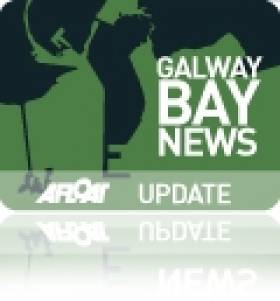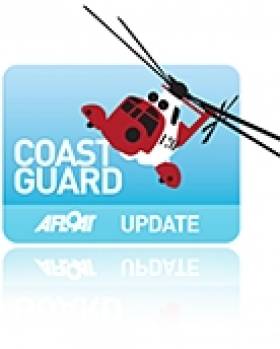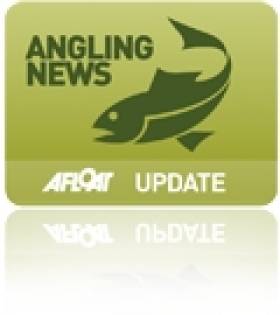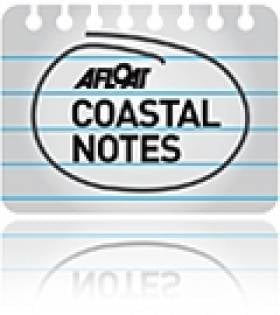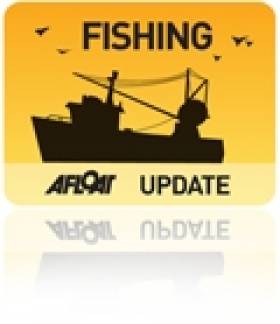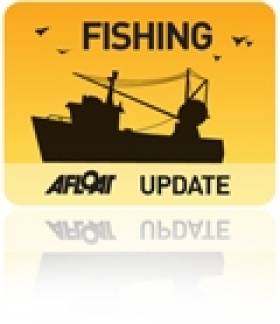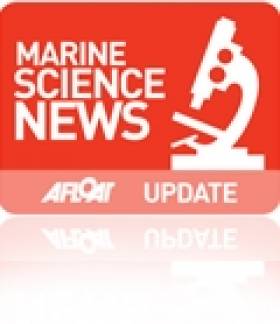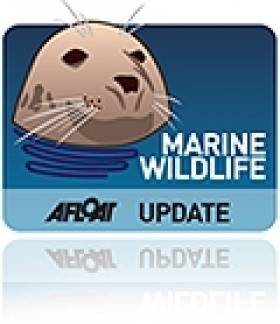Displaying items by tag: EU
British Boat Users Sailing Abroad Risk Fines Over Red Diesel
#NEWS UPDATE - British boat users are risking big fines if they sail their craft outside UK waters due to new laws on the use of red diesel, the Daily Telegraph reports.
New laws coming into force on 1 April "will require anyone moving into international waters to sign a declaration that their boat is not being powered by red diesel".
Red-dyed diesel is used by farmers and commercial fishermen throughout the UK at a lower rate of duty. It is also widely used by recreational boaters and yacht owners, as is green diesel by Irish pleasure boaters, though such users have been required to pay the full rate of tax for a number of years now.
However, the European Union is now clamping down on the use of dyed diesel.
The decision by Brussels is causing consternation among the yachting community, which argues that unmarked or 'white' diesel is not widely available in harbours and marinas.
And concerns remain over the presence of biofuels in white diesel which, as previously reported on Afloat.ie, can be harmful to marine engines.
The Daily Telegraph has more on the story HERE.
Management Plan for Galway Bay Fisheries On Track
#GALWAY BAY - Galway Bay FM reports that the National Parks and Wildlife Service is to work with the Marine Institute towards completing a management plan for Galway Bay.
It comes two weeks after a group of oyster fishermen met Minister for Natural Resources Pat Rabbitte at Leinster House to voice their concerns over a cap on oyster dredging licences.
As previously reported on Afloat.ie, local fishermen in the inner Galway Bay-Clarinbridge area are concerned that their livelihoods are at risk after the European Union ruled that there is over-intensification of fishing at the oyster bed.
Only 13 dredging licences have been issued this year, and EU Directives prevent their further issue until a fisheries management plan is introduced.
Galway West Senator Fidelma Healy-Eames says steps are being made to get the management plan on track.
Italian Coastguard to Deliver Keynote at Dublin Conference
#COASTGUARD - Representaives of Italy's coastguard will give an account of its handling of the Costa Concordia tragedy at an international conference in Dublin next month, The Irish Times reports.
The Italian coastguard has been invited to deliver the keynote address at Search and Rescue 2012, which is being hosted in Ireland for the first time.
It is expected that this address will include a detailed account of the sinking of the cruise liner Costa Concordia last month.
At least 17 people have died and 12 are still missing after the ship ran aground on the western Italian coast. One Irish couple were among the thousands rescued from the stricken vessel.
Meanwhile, attendees at the conference - which is being hosted in the year of Ireland's charing of the EU coastguard network - will also witness demonstrations of the Irish Coast Guard's rescue helicopter fleet at Weston Airport in Leixlip.
As previously reported on Afloat.ie, Irish Coast Guard director Chris Reynolds has been charged with preparing the grounds for a permanent secretariat to be run by EU coastguard officers.
NI Taxpayers Could Foot the Bill for Fines Over Dwindling Salmon Stocks
#ANGLING - Northern Ireland's taxpayers could be left with a bill for millions in EU fines if action isn't taken to reverse the decline of salmon stocks, the News Letter reports.
Ulster Unionist MLA Robin Swann said he believes that voluntary measures to help protect the North's Altantic salmon will not remove the threat of "fines which would likely run into millions which [the people of NI] will end up paying".
As previously reported on Afloat.ie, NI's Fisheries Minister Carál Ní Chuilín called on offshore anglers and commercial fishermen to forego applying for 2012 salmon licences.
Annual monitoring of the North's salmon rivers has shown a failure to reach targets most years since 2002, with the survival rate of salmon in the marine phases in some cases dropping to as little as 5%.
Coastal drift nets and bag nets off the north Antrim coast - which contravene EU directives - have been blamed for intercepting salmon stocks before they reach the rivers, and anglers and conservation groups have already called for a ban.
But Swann says that Department of Culture, Arts and Leisure (DCAL) does not yet have the legislative power to stop them.
The News Letter has more on the story HERE.
Marine Notice on Exemptions from EU Regulations for Recreational Water Craft
#NEWS UPDATE - A recent Marine Notice from the Department of Transport, Tourism and Sport (DTTAS) advises consumers, retailers and manufacturers on the types of craft to which the EU recreation water craft regulations do not apply.
In general recreational craft and related products must meet the essential safety, health, environmental protection and consumer protection requirements of the Recreational Craft Directive as set out in the Recreational Craft Regulations.
However, these regulations do not apply to craft intended solely for racing; canoes and kayaks; gondolas and pedalos; surfboards; historical water craft and replicas; experimental craft and ones built for own use; commercial craft; and a number of others.
These exceptions are however still subject to the EU's General Product Safety Directive.
Complete details are included in Marine Notice No 56 of 2011, a PDF of which is available to read and download HERE.
- Marine Notice
- water craft
- regulations
- EU
- Department of Transport, Tourism and Sport
- DTTAS
- consumers
- retailers
- manufacturers
- recreational craft
- Safety
- Health
- environmental protection
- Recreational Craft Directive
- Recreational Craft Regulations
- racing
- Canoes
- Kayaks
- gondolas
- pedalos
- surfboards
- historical
- replica
Ireland's Bathing Spots Among Cleanest in Europe
Ireland has ranked fifth in a new Europe-wide report on bathing water quality - but some beaches in Northern Ireland are falling short of strict EU standards.
MEP Jim Higgins welcomed the results of the annual Bathing Water Report for 2010, saying: "Ireland's scenic attributes are a primary reason for attracting tourists and it is essential that our coastal and inland bathing sites are also enticing."
Ireland has moved up five places from its overall rank of 10th in 2009, with 90.1% of all bathing water sites meeting the EU's Blue Flag guidelines for water quality at beaches and swimming spots.
However, the Daily Telegraph reports that a number of beaches in Northern Ireland and other parts of the UK were judged to be 'poor'.
Beaches at Newcastle and Ballyholme in the North are among 16 across the UK that did not pass the EU's strict checks for Blue Flags.
The 2010 report ranks Cyprus as the cleanest bathing spot in Europe, with 100% of sites passing EU insspection. It was closely followed by Croatia with 97.3%, Malta at 95.4% and Greece at 94.2%.
Illegal Fishing Won't Slip Through the Net
"Traceability is central to these new rules, 'from net to plate'. It will enable Member states to spot wrongdoings along the market chain, and trace them back to the culprit. Inspections will be carried out in the same way all over Europe. Data will be collected and cross-checked electronically. So once the product reaches the stores, the consumer will know it has been fished legally.
Mr Higgins, who is a member of the European Parliament's Committee on Fisheries, says those involved in illegal practices like overfishing will be punished. "If someone breaks the law, they will face equally severe sanctions wherever they are and whatever their nationality. If they are caught fishing illegally repeatedly, thanks to a new point system they will end up losing their licence."
The Fine Gael MEP added that the EU now has the means to establish a real culture of compliance against overfishing to ensure a sustainable fisheries sector in Europe.
IWT Welcomes EU Ban on Fish Discards
The Irish Wildlife Trust has welcomed the proposed EU ban on discarding fish as part of the Common Fisheries Policy.
The organisation said it was a "vital step" towards "restoring the ecological balance in Irish seas".
IWT chairman Pádraic Fogarty said: “Discarding is tremendously wasteful and is causing untold damage to our marine ecosystems."
EU fisheries commissioner Maria Damanaki has described the practice of discarding as “unethical, a waste of natural resources and a waste of fishermen’s effort.”
The proposals to ban discards have come after a high-profile campaign against the practice of fishermen dumping dead fish, through which it emerged that half of all fish caught in the North Sea are thrown back.
Seeing the capabilities of Ireland's largest research vessel and the work of the Marine Institute, Mr Simon Coveney highlighted the importance the Marine Sector has on the Irish economy. "The seas and ocean that surround the land of Ireland is arguably one of our countries greatest natural resources. Through marine research, development and sustainable management, Ireland is developing a strong reputation as an emerging centre of excellence, where we have prominent roles in many European and international marine science bodies," he said.
Ireland's national research vessels RV Celtic Explorer and RV Celtic Voyager will record 627 days at sea between the two during 2011. Their work will range from fisheries surveys to underwater mapping and from climate studies to deepwater surveys with the remotely operated submersible ROV Holland 1.
"The work conducted on the vessels continues to feed into the success in attracting EU funding to Ireland's marine science programmes that have been achieved by our strategic approach to marine science planning" explained Dr Peter Heffernan, CEO of the Marine Institute.
"The award of funding projects shows that partnerships between academics and small businesses can yield significant dividends in creating jobs, generating economic revenue and the supply of raw materials for new industries ranging from ocean energy and environmental monitoring technologies to marine-inspired pharmaceuticals and food ingredients" he further said.
Canada Challenges EU Over Seal Products Ban
The Canadian Government is challenging the European Union over its ban on seal products.
Canada has reportedly asked the World Trade Organisation (WTO) to arbitrate a formal dispute to assess the EU ban, which Canada alleges is a violation of WTO rules.
The EU ban on seal products was approved by all 27 member states in 2009 and came into force last year. According to Canada it has led to a decline in its seal product market of more than 50%.
Canada's fisheries minister Gail Shea accused the EU of siding with "animal rights lobbyists" over the ban.
The country has strict regulations regarding the hunting of seals, but the most efficient hunting method - commonly referred to as 'seal clubbing' - is highly controversial. Animal rights activists also claim that many seals are skinned alive, which is a prohibited practice.
However, the remote nature of seal hunting grounds makes enforcing regulations difficult.




























